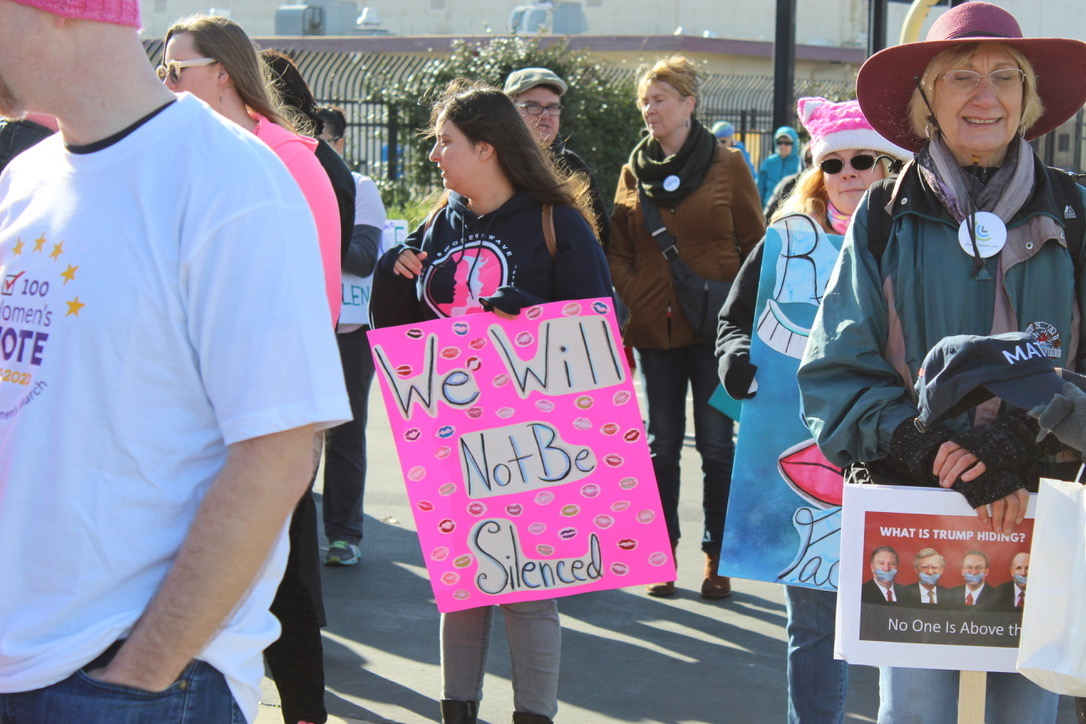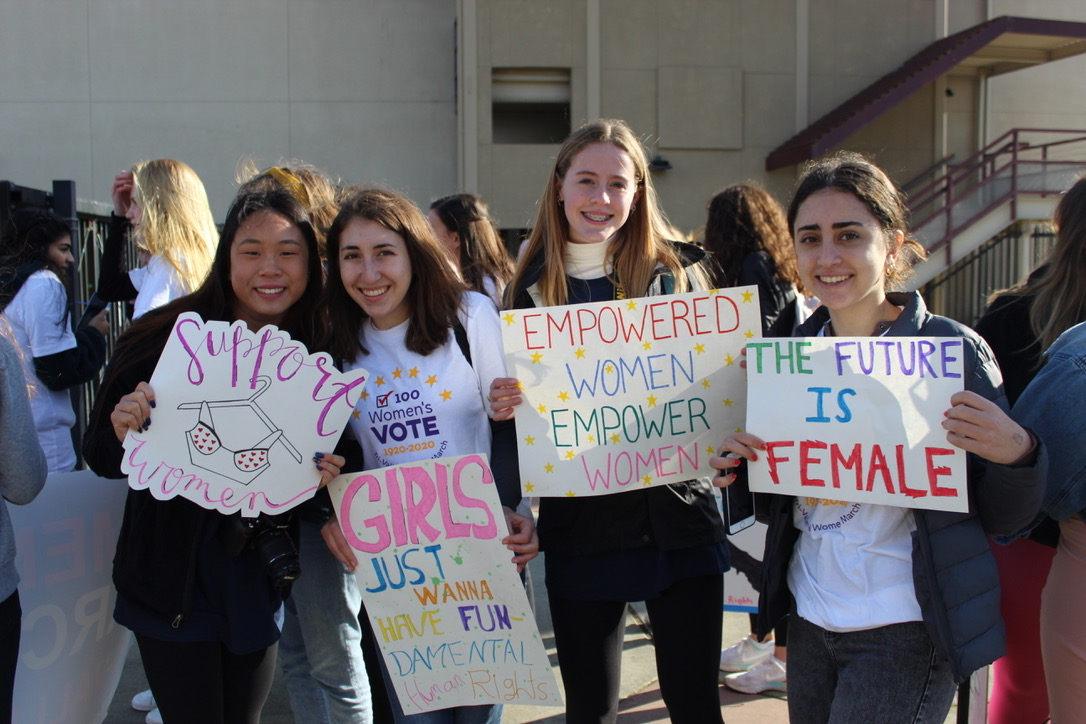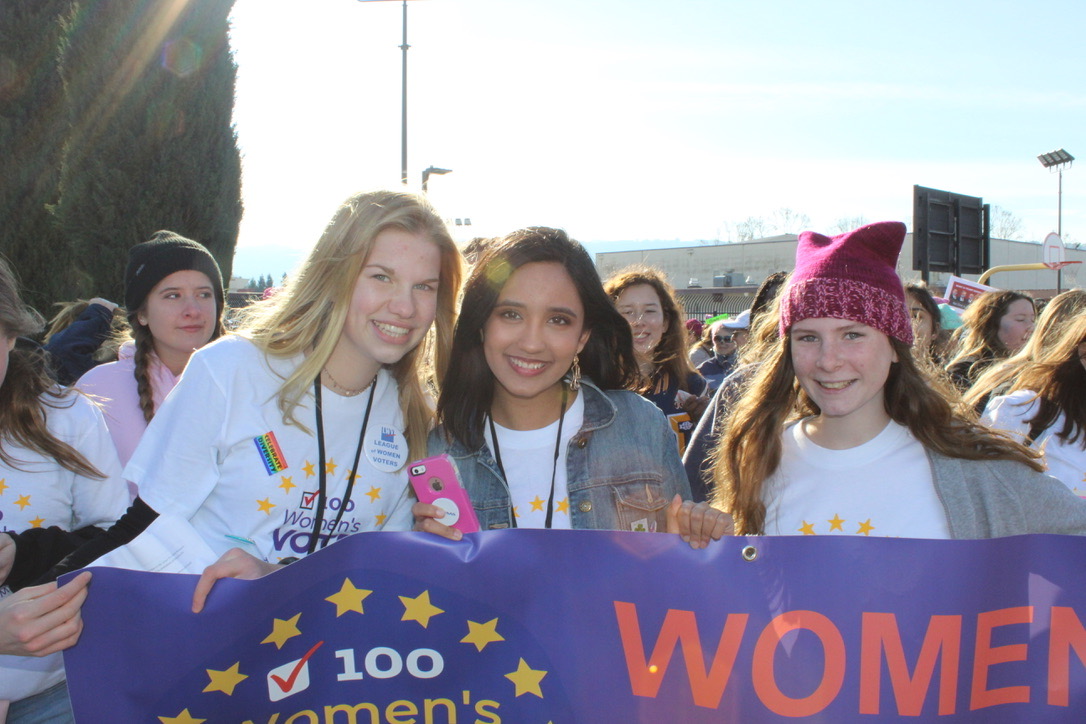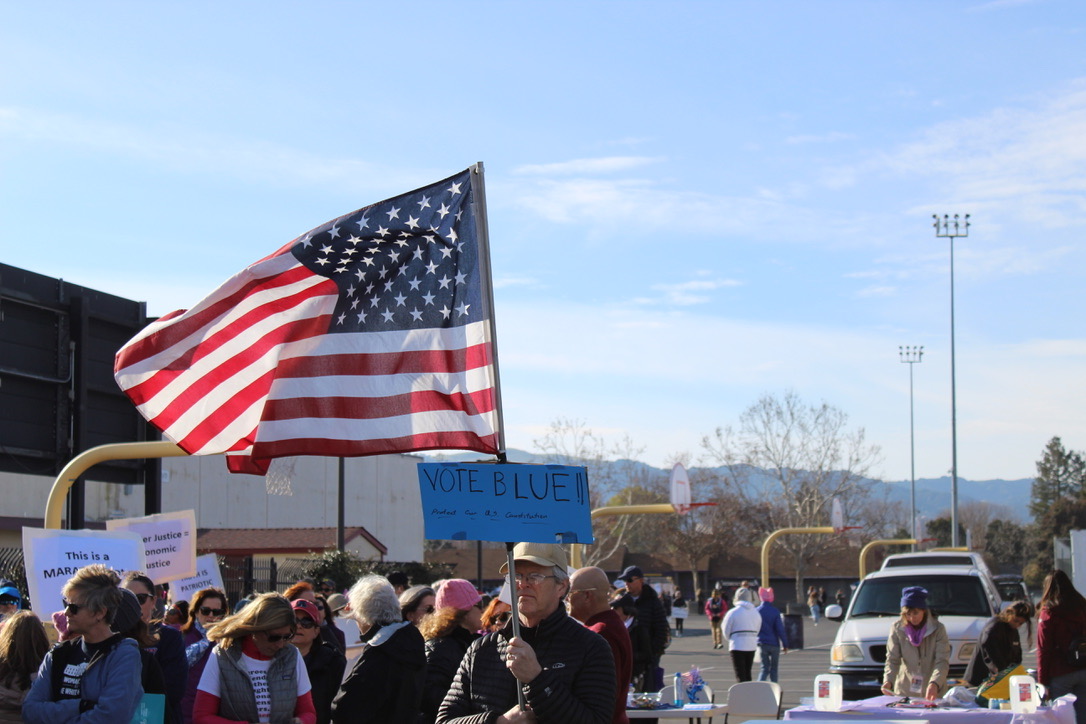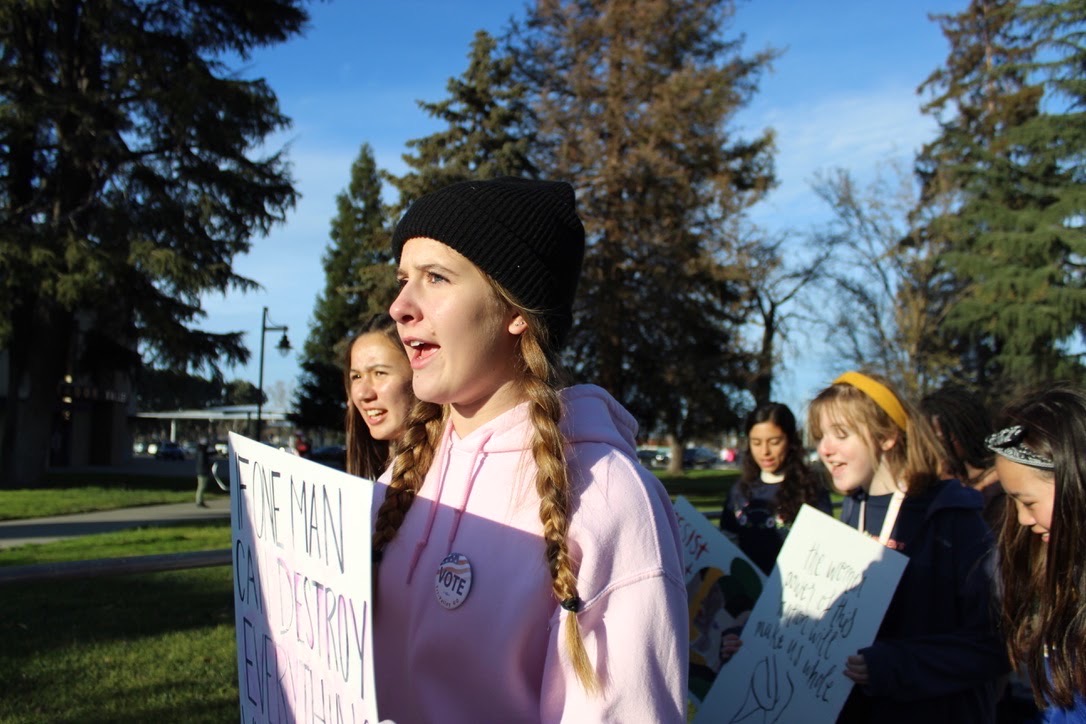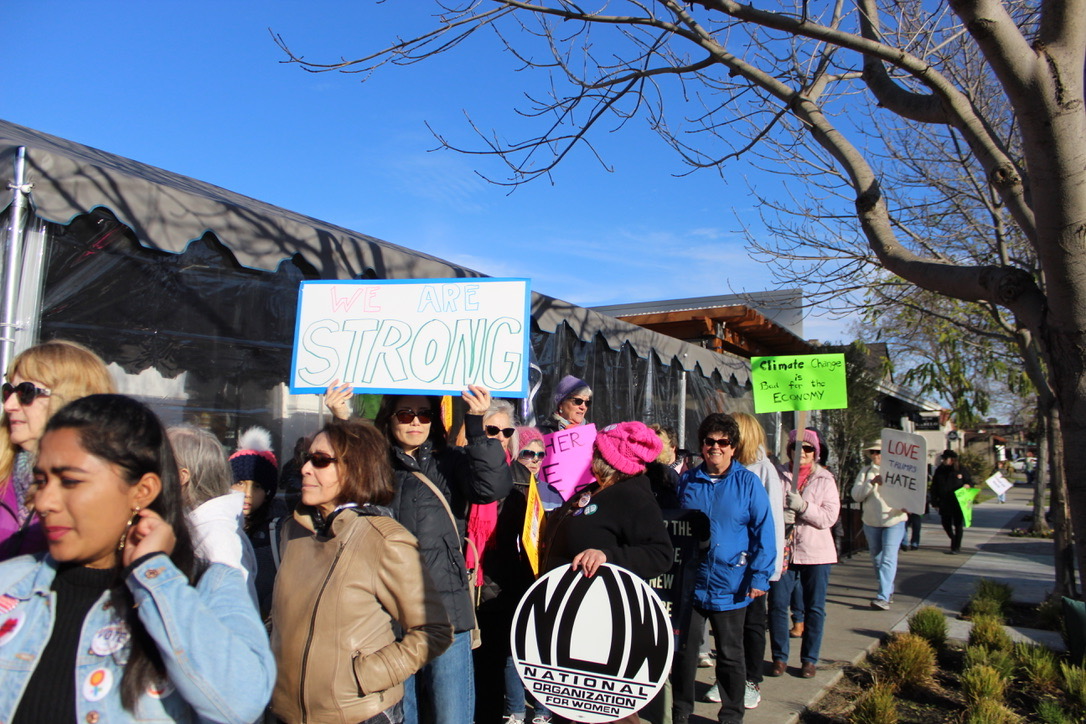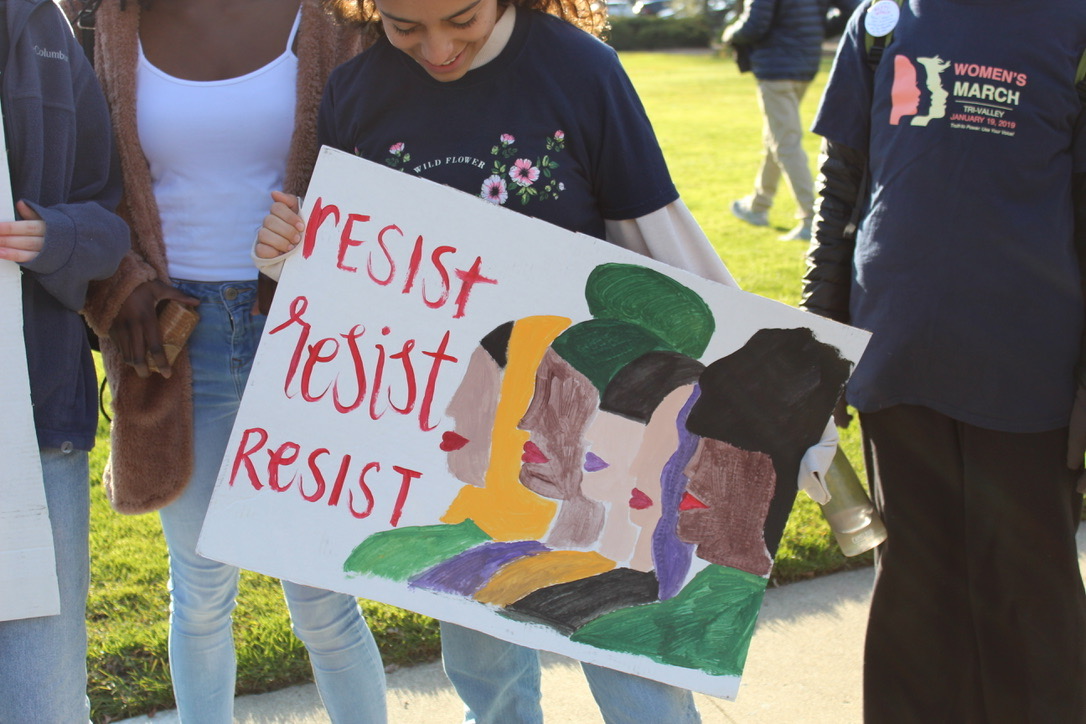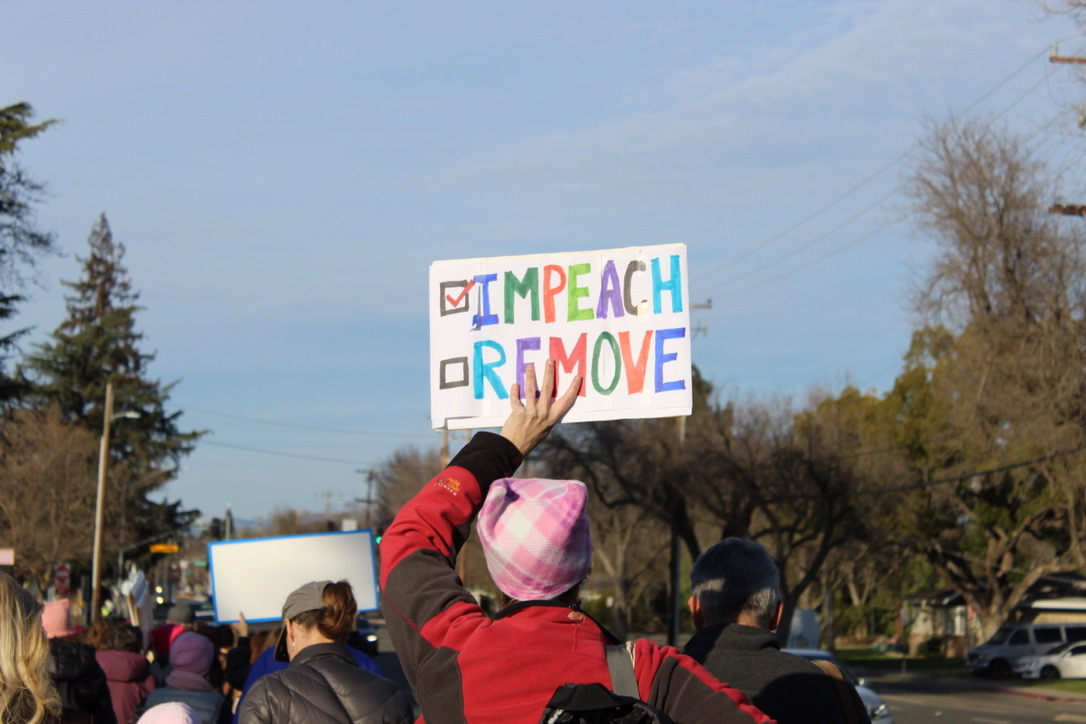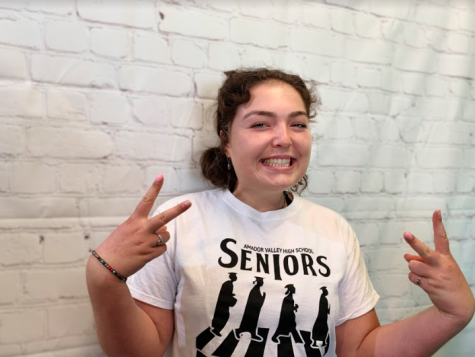2020 Tri-Valley Women’s March Held at Amador
February 3, 2020
On Saturday, January 18, the second annual Tri-Valley Women’s March was held on the Amador campus. More than 400 marchers, women of all ages and men alike, joined together to march in solitude for their natural fundamental rights.
The event started at noon with a rally out on the Amador football field where multiple women speakers talked about current issues like the possible end of Planned Parenthood, environmental issues, and discrimination against LTGBQ+ and transgender people.
“The speakers and the energy of the crowd were amazing. I loved listening to such influential women unapologetically speak out about the same issues I am passionate about. It stood out to me when one of the speakers spoke about how the women’s march didn’t end after the day was over, but that it will continue every single day as long as women are on the planet,” said Misbah Mahmood (‘20).
The marchers then took to the streets of Pleasanton with their signs and chants to advocate for improved changes in our government.
The first women’s march took place on January 21, 2017, the day after Trump’s inauguration. It was created to send a message to the new presidential administration that “women’s rights are human rights” and that the women of America would not be silenced in the achievement of their rights.
Last year, Students for Social Change, a non-profit organization created by a group of Amador and Foothill students, helped to bring a women’s march to the Tri-Valley. (Read about 2019’s Tri-Valley Women’s March here.)
This year, the Tri-Valley Women’s march was organized by Students for Social Change, Tri-Valley Women’s Action Group, Livermore Indivisible, and OFA East Bay Central.
Many Amador students attended the march and had an overwhelmingly positive experience.
“I attended the Tri-Valley Women’s March this year and it was my very first women’s march I’ve ever been to. I’ve always wanted to go, especially the one in San Francisco, but I realized that it was much more important for me to support the march at a local level to show support and be part of the community I live in,” said Mahmood.
One of the overall messages from the rally was the idea that women’s voices need to be heard in the upcoming elections. Presumably, all the speakers contested that the only way women will see change in our government is to use the power of democracy and vote for legislatures that are in their benefit.
“The women’s march will always be important but even more important in the current world we live in. There’s been such a divide recently in America and the world in general, that has distracted us from our unity as human beings and the women’s march brings us all together,” said Mahmood.
Although the 2020 Tri-Valley Women’s March was an overwhelming success in bringing together women of all ages, ethnicities, and sexual orientations to advocate for their freedoms, the question is, will the women’s marches of America continue if any candidate other than Trump wins the 2020 presidential election? Although this question cannot be currently answered, the hope is that women will continue to advocate for their rights and the rights of others for generations to come.
(Read about last year’s cancellation of women’s marches across the country here.)

